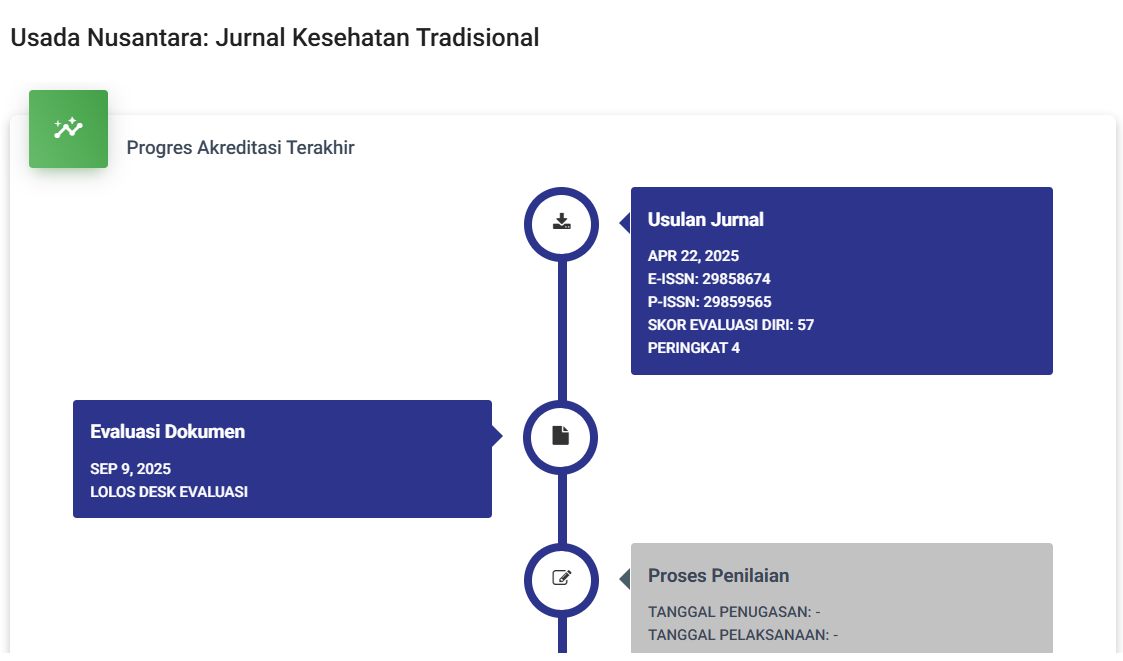Gambaran Tingkat Pengetahuan Remaja SMA Hangtuah Tarakan Mengenai HIV/AIDS Tahun 2024
DOI:
https://doi.org/10.47861/usd.v2i1.900Keywords:
HIV/AIDS, Knowledge, AdolescentsAbstract
HIV (Human Immunodeficiency Virus) is a virus that weakens the human immune system and leads to AIDS (Acquired Immune Deficiency Syndrome). Since the beginning of the epidemic, more than 70 million people have been infected with the HIV virus, and 35 million people have died due to HIV. The majority of HIV and AIDS cases still occur in the productive age population (15-49 years), where transmission is most likely to occur during adolescence. Objective: To determine the level of knowledge about HIV/AIDS among high school students at Hangtuah Tarakan in 2024. The research method used is descriptive survey, and the sample is taken through purposive sampling. The sample in this study consists of 120 respondents, all of whom are tenth-grade students at Hangtuah Tarakan High School. The research results show that based on the age frequency, the highest number of mid-adolescents aged 14-16 years is 97 respondents (80.8%), the highest gender characteristic is female, with 68 respondents (56.7%), the characteristic based on the most common source of information is social media (internet, TV, newspapers) with 86 respondents (71.7%), and the characteristic with the highest level of knowledge is good knowledge, with 69 respondents (57.5%). The conclusion of the research results is that the level of knowledge about HIV and AIDS in Hangtuah Tarakan High School is mostly good, as found in 120 respondents
References
Ariani F., Nur SP dan Ananda MP. 2021. Penyuluhan Kesehatan Reproduksi Remaja di Panti Sosial Bina Netra (PSBN) Tuah Sakato Padang. Communnity Development Journal. Vol.2(3): 747-750.
Hanwari. (2015). Manajemen Stres Cemas dan Depresi. Jakarta: Balai Penerbit FKUI.
Herawati. (2017). Metodologi Penelitian Kesehatan. Jakarta: Rineka Cipta.
Imelda, A . (2020). Membuka Mata Masyaraka :”Menghapus Diskriminasi dan Stigma Perempuan dangan HIV/AIDS” dalam Jurnal Perempuan No. 43, Melindungi Perempuan dari HIV/AIDS, Yayasan Jurnal Peremuan, Jakarta.
Jumu, L. (2024). Perbandingan Tingkat Pengetahuan Siswa Kelas XI SMA Sebelum dan Setelah Edukasi Komplikasi Penyakit Sosial terhadap Kejadian HIV/AIDS di Biak Numfor Tahun 2021. HEALTHY: Jurnal Inovasi Riset Ilmu Kesehatan, 3(1), 20-29.
Naumi S, Pasaribu. (2019). Hubungan Pengetahuan HIV/AIDS Dengan Stigma Terhadap Orang Dengan HIV/AIDS di Kalangan Remaja 15- 19 Tahun di Indonesia (Analisis Data SDKI). Jurnal Epidemiologi Kesehatan Indonesia, 1(2), 35-43.
Nurhasan A, Prabowo. (2021). Pengaruh Pendidikan Kesehatan Terhadap Pengetahuan Sikap dan Prilaku. Jakarta: Trans Info Media.
Pieter, dkk. (2018). Pengantar Psikopatologi Untuk Keperawatan. Jakarta: Prenada Media Grup.
Ristanti, A. (2013). Hubungan Bimbingan Belajar Swasta dengan Hasil Belajar Biologi di SMA 1 Palembang”. FMIPA, Jurusan BIologi, Universitas Negeri Semarang.
Suryani, R. D., Efendi, Y., & Abidin, A. Z. (2024). Hubungan Fungsi Keluarga: Health Care Function dengan Pengetahuan Remaja Tentang HIV/AIDS Di Kelurahan Kepatihan Kecamatan Bojonegoro Kabupaten Bojonegoro. Jurnal Ilmu Kesehatan MAKIA, 14(1), 23-29.
WHO. (2020). HIV/AIDS. In the South-East Asia. http://www.who.int/southeastasia/health-topics/hiv-aids- Diakses tanggal 3/06/2022.








